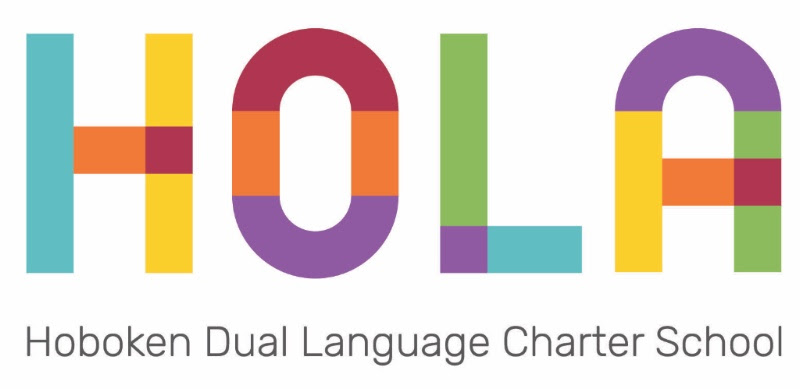
Rethinking Autism Education in New Jersey
April 30, 2024
NJEA: Teachers, Here Is How You Combat Antisemitism
May 1, 2024Lay-Offs Are Coming To NJ Schools. Let’s Put Kids First.
According to data from the New Jersey Department of Education, enrollment in our public school system has dropped by 36,000 students in the last decade. This is a feature, not a bug. Student enrollment is decreasing, a combination of lower birth rates and Covid-linked enthusiasm for homeschooling, micro-schools, and private schools. In Monmouth County alone, enrollment dropped by 9.7% between the 2012-2013 and 2022-2023 school year. By 2031 enrollment in NJ public schools, both traditional and charter, will drop by 7.5 percent,, a loss of 103,281 students.
Don’t take it personally, New Jersey: A new analysis by Chad Aldeman shows public schools served 1.2 million fewer students in 2022-23 than it did before the pandemic. The National Center for Education Statistics predicts public schools, including public charter schools, will lose an additional 2.4 million students (4.9%) by 2031. While some states continue to see enrollment increases—Florida, North Dakota and Idaho–almost every other state should start planning for lower student counts, which will involve laying off teachers, closing under-enrolled schools, and even merging districts.
It is the inevitable cuts to staff that are most troubling: Fewer students, fewer teachers. We were spared the pain by the reprieve of a four-year infusion of Covid federal emergency funds but reality is hitting as districts struggle to balance 2024-2025 budgets. Over the last five years Jackson Public Schools has laid off 200 staff members. This year Asbury Park will lay off 27, South Orange-Maplewood will lay off 17, East Brunswick and Brick will lay off 50 each..
How do New Jersey school leaders choose which teachers to lay off? They don’t get to choose because NJ law requires that districts lay off teachers in order of seniority, the “last one in” is the “first one out,” or LIFO. The National Council on Teacher Quality (NCTQ) says that using LIFO to determine lay-offs is inequitable because it “harms teacher diversity and teacher quality and, in turn, negatively impact student learning.”
To make matters worse, recent efforts to increase teacher diversity have worked, at least around the edges. But many of these teachers will be the first to go because they are relatively new, even though NCTQ points to research that shows that teachers with just a few years under their belts are just as effective as veterans: “Firing a highly effective third-year teacher over a poorly performing veteran of 15 years leaves students at a major disadvantage.”
As a state that has enshrined LIFO into law, what can New Jersey do? Here are suggestions from NCTQ:
“States should begin by requiring that school districts consider classroom performance as a factor in determining which teachers are laid off when a reduction in force is necessary, and stop using seniority as the sole criterion…Districts should seize the opportunity to eliminate seniority or at the very least, expand to additional criteria….To advance the companion goals of diversifying the teacher workforce and supporting teacher effectiveness, we must design and implement thoughtful means of reducing the teacher workforce that will benefit all students. If we stand aside and continue with the status quo, students will suffer the costs—especially our most vulnerable and historically disadvantaged students.”
It is not just NCTQ sending this message. A Harvard University paper says, “LIFO layoff policies are inequitable, lead to more total job losses, and undercut efforts to recruit talented and diverse teachers.” From EdTrust: “[D]ue to the widespread contract stipulation that teachers who were most recently hired are laid off first, all the work districts have done to increase the percentages of BIPOC teachers in recent years may be undone.”
Think about it: Instead of saying, “27 teachers have to go to balance our budget so we’re cutting the 27 teachers with the least seniority,” we say, “what are the needs of our students?” If a teacher is bilingual or certified in special education, let’s give that teacher priority over a teacher without those skills. Wouldn’t it be better for students—and teachers—if we gave principals more autonomy to choose which teachers are most effective? If we factored in student growth or culturally-responsive pedagogy?
New Jersey once entertained the idea of eliminating LIFO. In 2012, Senator Teresa Ruiz, who was spearheading the drive for tenure reform, proposed a bill that would have gotten rid of seniority-based lay-offs. Staff told her it was “political suicide.” After massive pushback from state teacher union executives, she agreed to maintain LIFO; then-Newark Mayor Cory Booker noted that any attempt at tenure reform that maintains LIFO is “monumentally absurd.”
Lay-offs are coming. Shouldn’t we stop being absurd?





6 Comments
What does this mean in relation to the continued teacher-shortage claims? Wouldn’t less students correlate to less teachers?
It depends. If there are just a few fewer students enrolled, that wouldn’t require a lay-off, just a smaller class size. If the trend continues, we will need fewer teachers. The impending lay-offs coincide with the loss of federal COVID money. There was a reason experts suggested the money not be spent on recurring costs, like payroll.
Agreed. School districts were advised not use federal COVID funds for salaries and now many districts across the country will be dismissed because of the ineptitude of districts not spending money wisely. On top of the fact that we are currently experiencing a teacher shortage, this layoffs will further hamper educational outcomes. I’m sure how NJ used the educational funding equation to distribute funds to towns and cities, but people down in Trenton really need tp reconsider how they allocate funds. We are entering troubling times in public education.
Perhaps, this is one of the reasons for the shortage of qualified teachers that has reached a crisis level in New Jersey. And worse, a drop in the number of teacher candidates in the pipeline does not bode well for the future.
If the NJEA is not willing to address the elephant in the room called tenure and our politicians lack the courage to demand ways to improve the system beyond LIFO, New Jersey will remain in a crisis. Hopefully, old dogs can learn new tricks.
Highly doubtful. The irony of all of this is NJ is top ten on many lists for public education. If we are one of the best, I can only imagine what the states at the bottom look like. The NJEA will not lift a finger and we will continue on this hamster wheel of failure called public education.
The gears eventually wear out on a spinning wheel. “Best in the Nation” for whom? New Jersey has a very diverse demographic and is also ranked the sixth most segregated school system in the nation. Therefore, there are large learning gaps between school districts. Academic inequality continues to widen between low-income students and those who are better-off. This is a major defect and makes it a bit nearsighted when proclaiming a system to be the “envy” of the nation. A qualified, energetic, talented teacher is priceless. But, I fear LIFO and the salary structure will direct them to another profession. You may right about the hamster wheel of predictable failure. Maybe, “You can’t teach an old dog new tricks.”